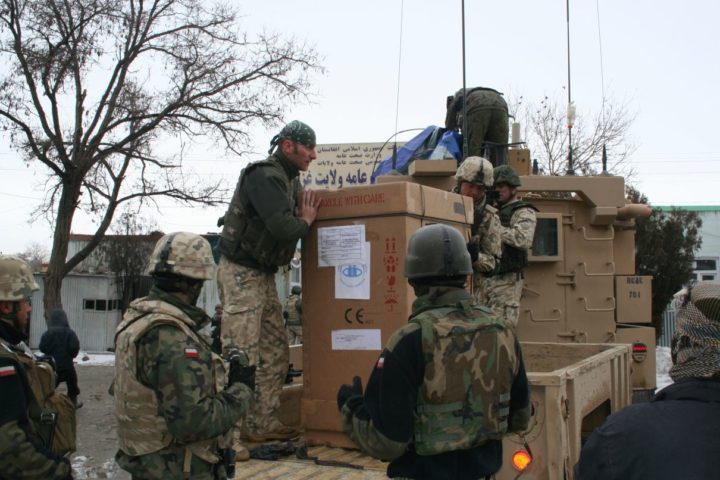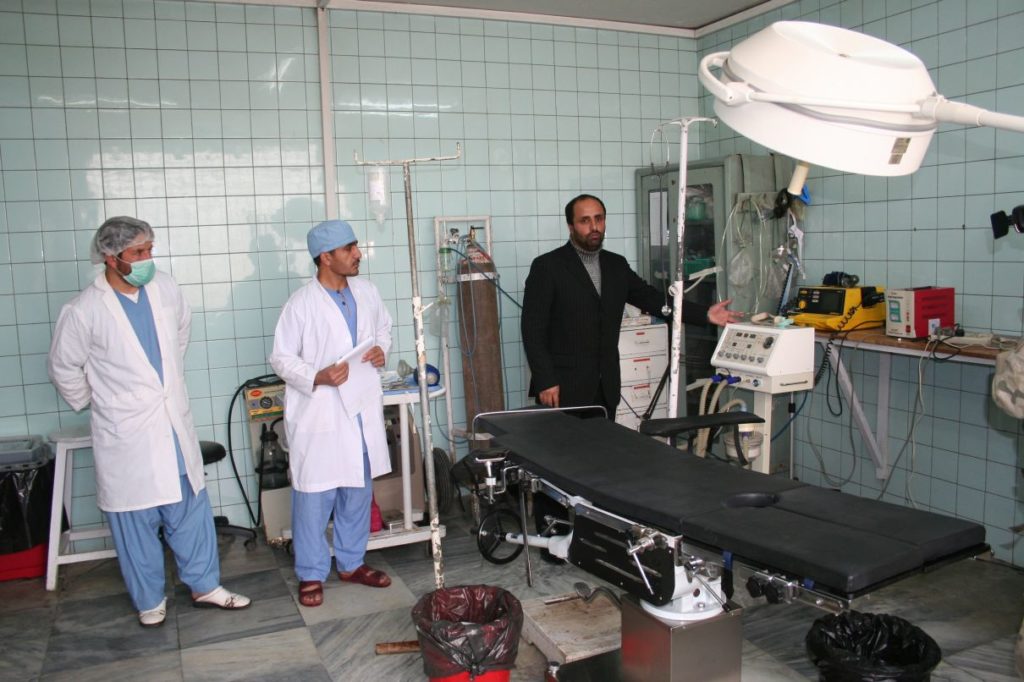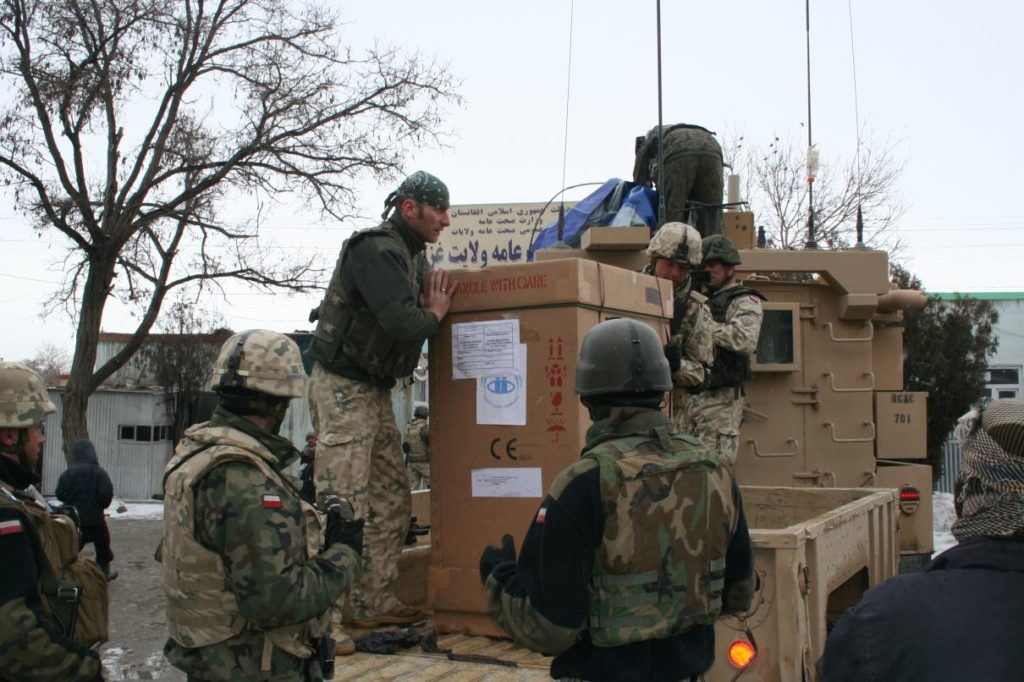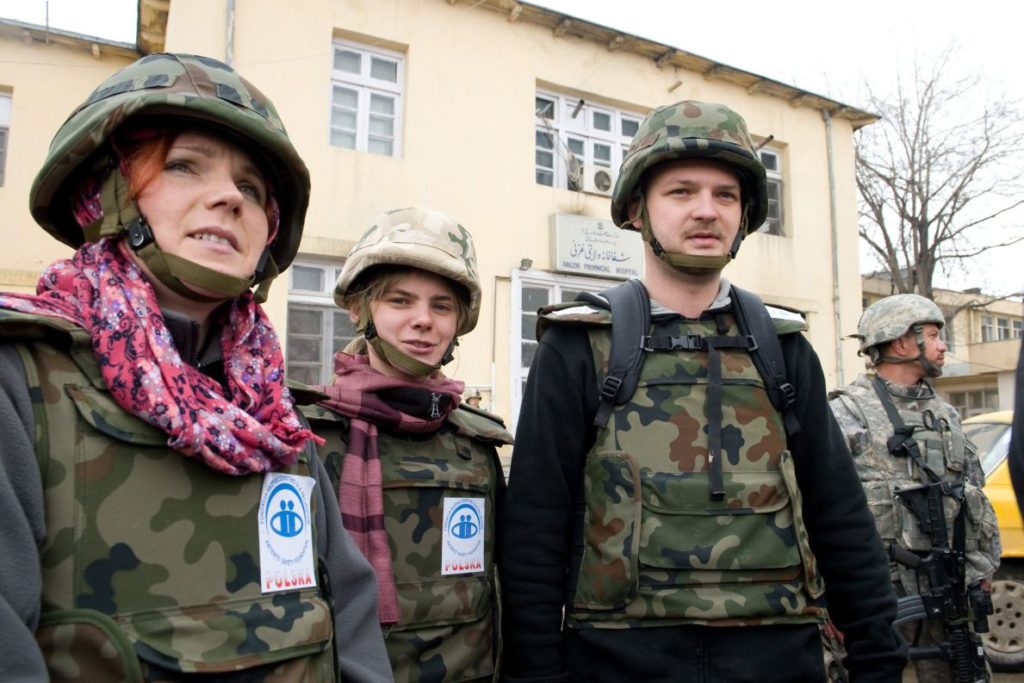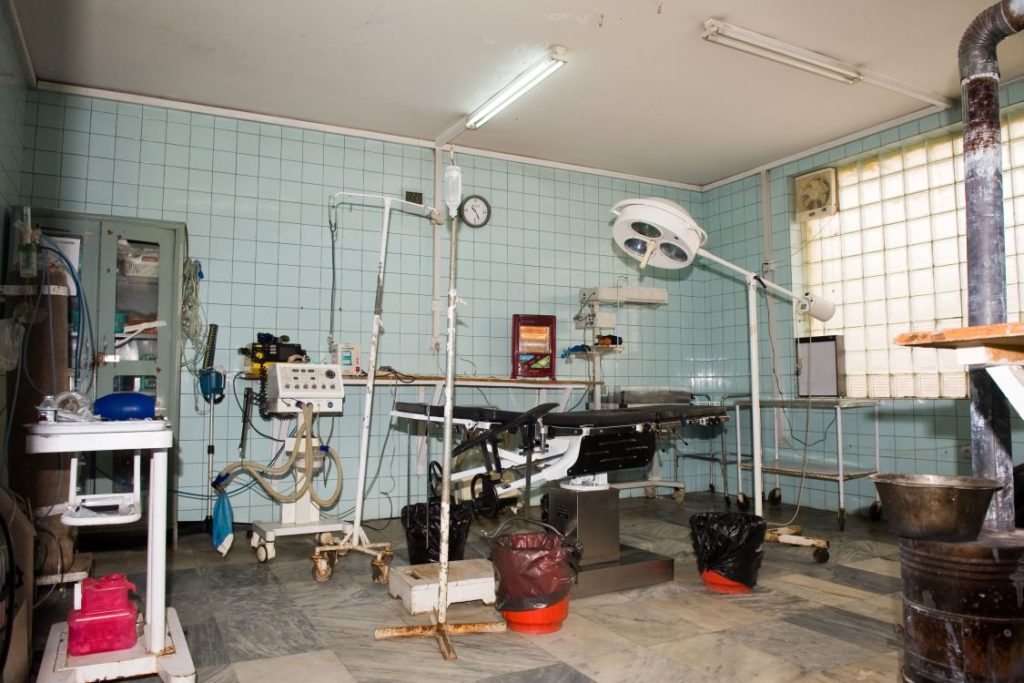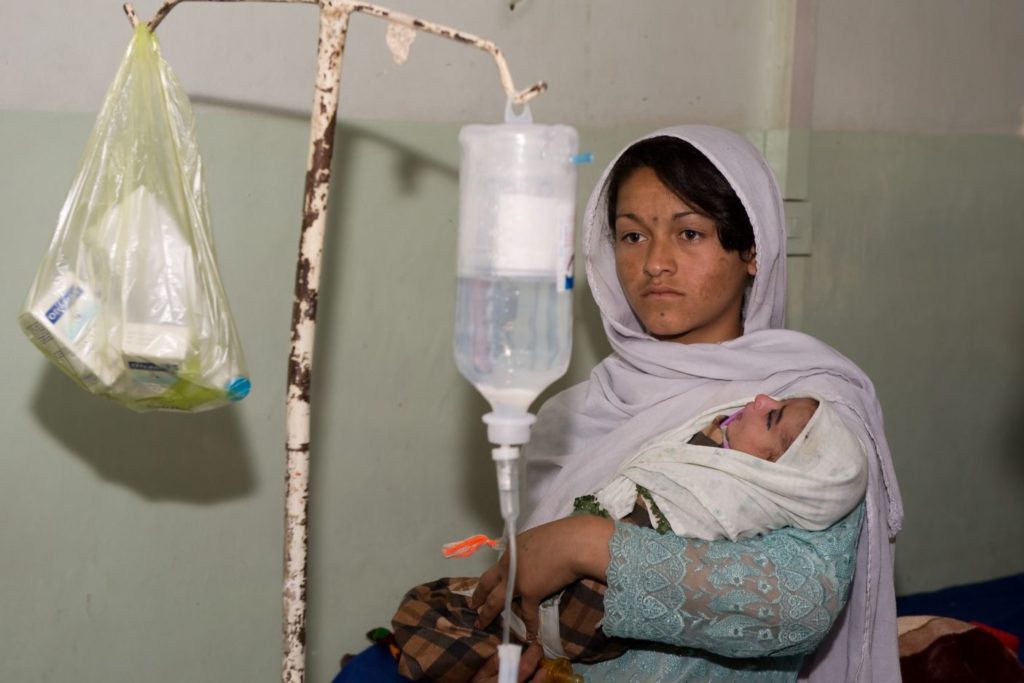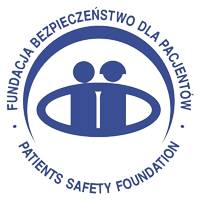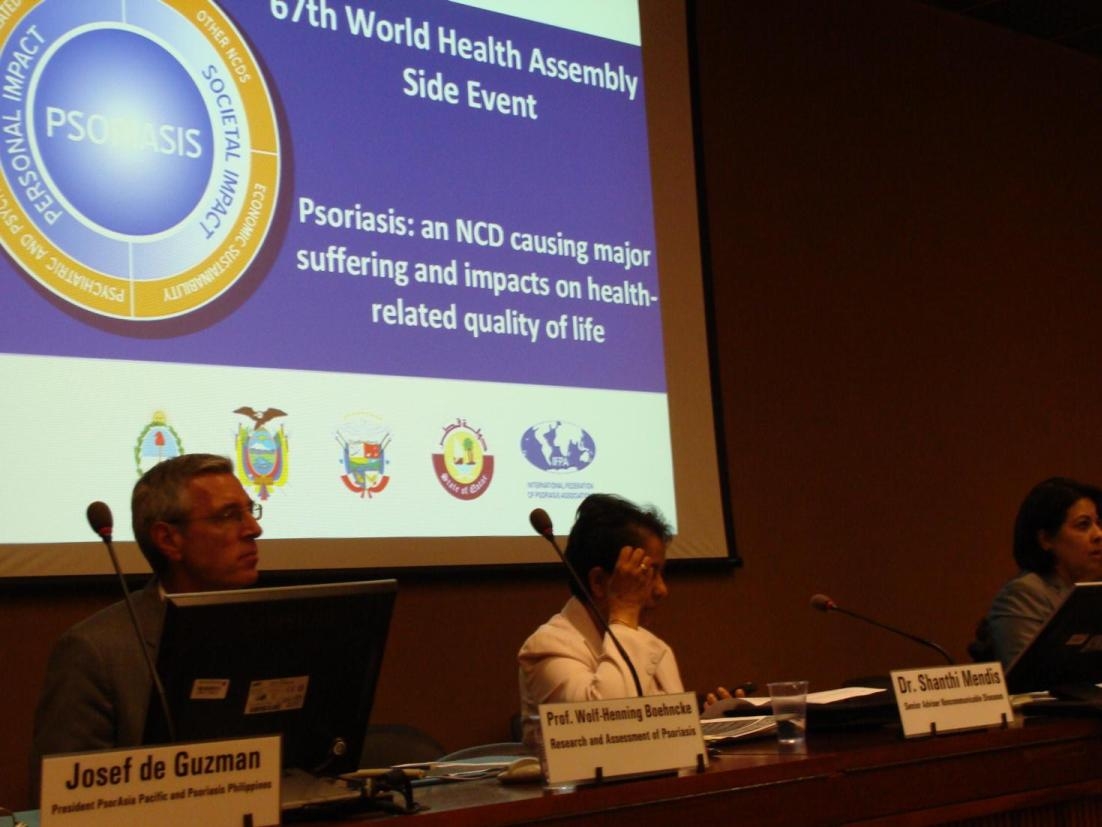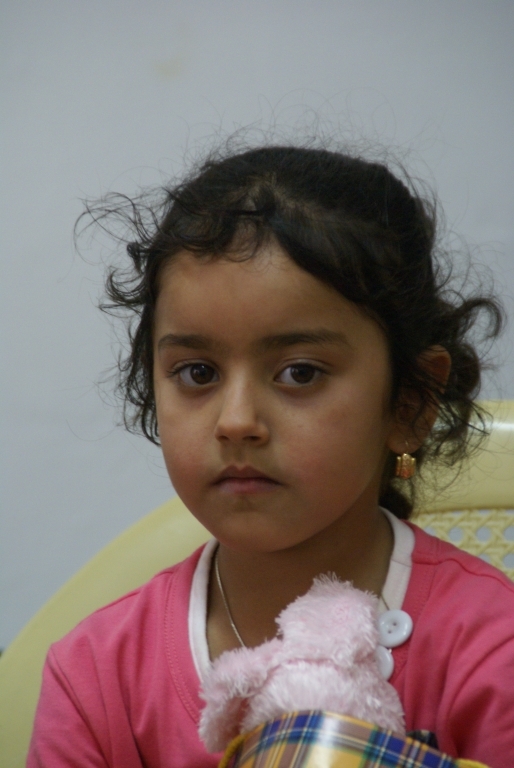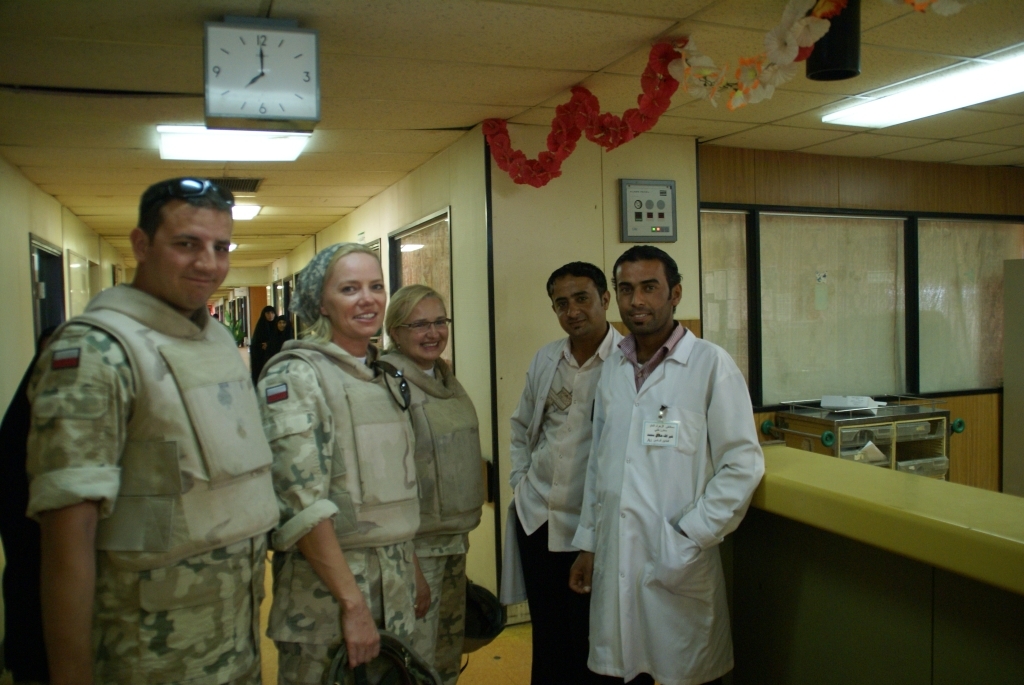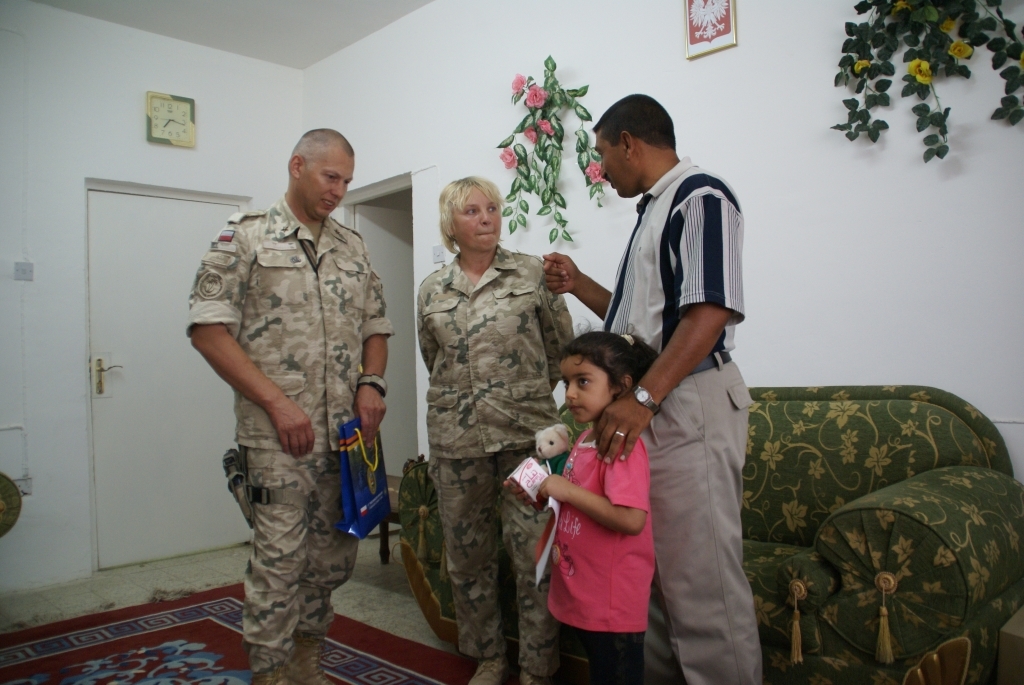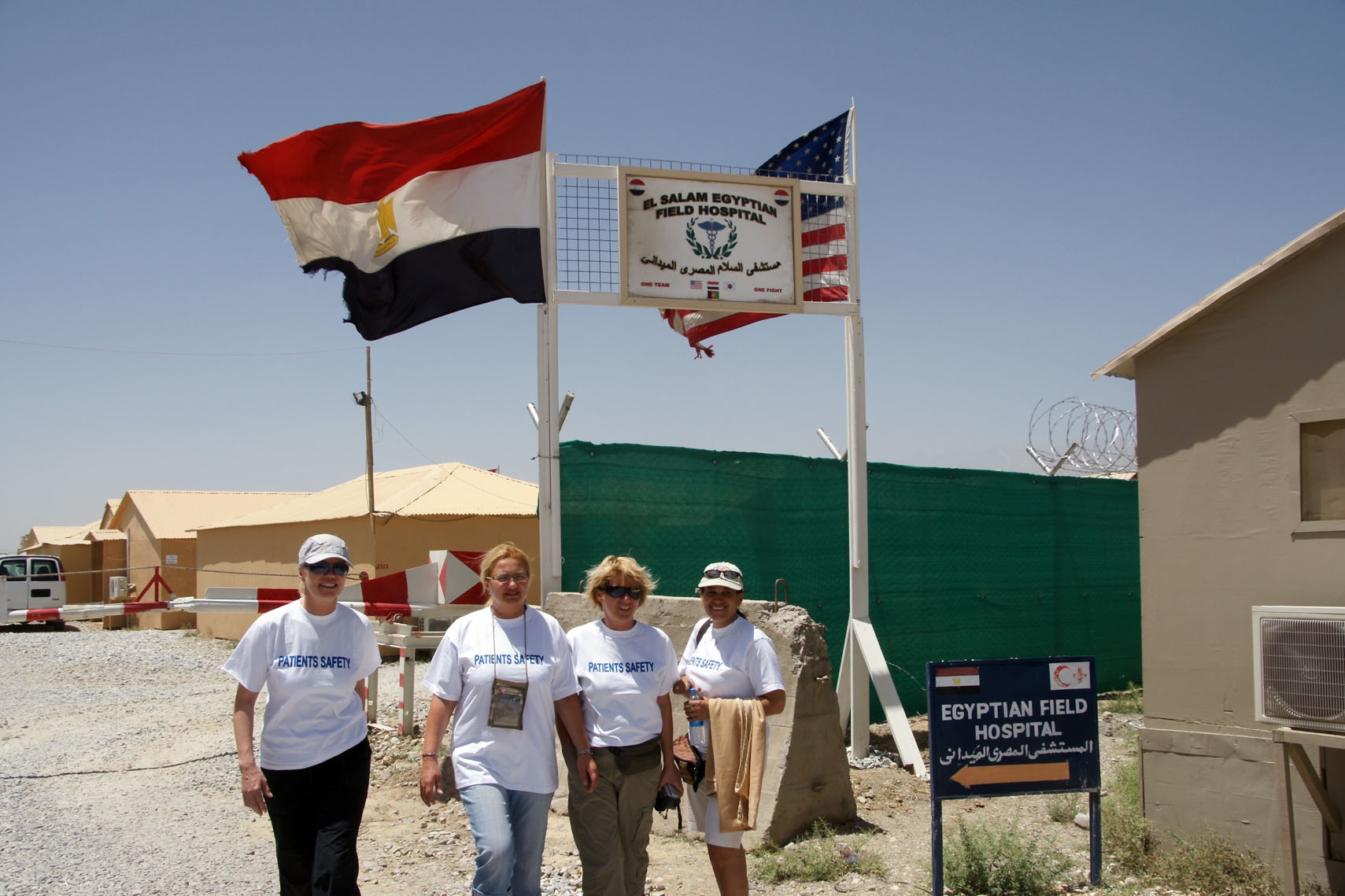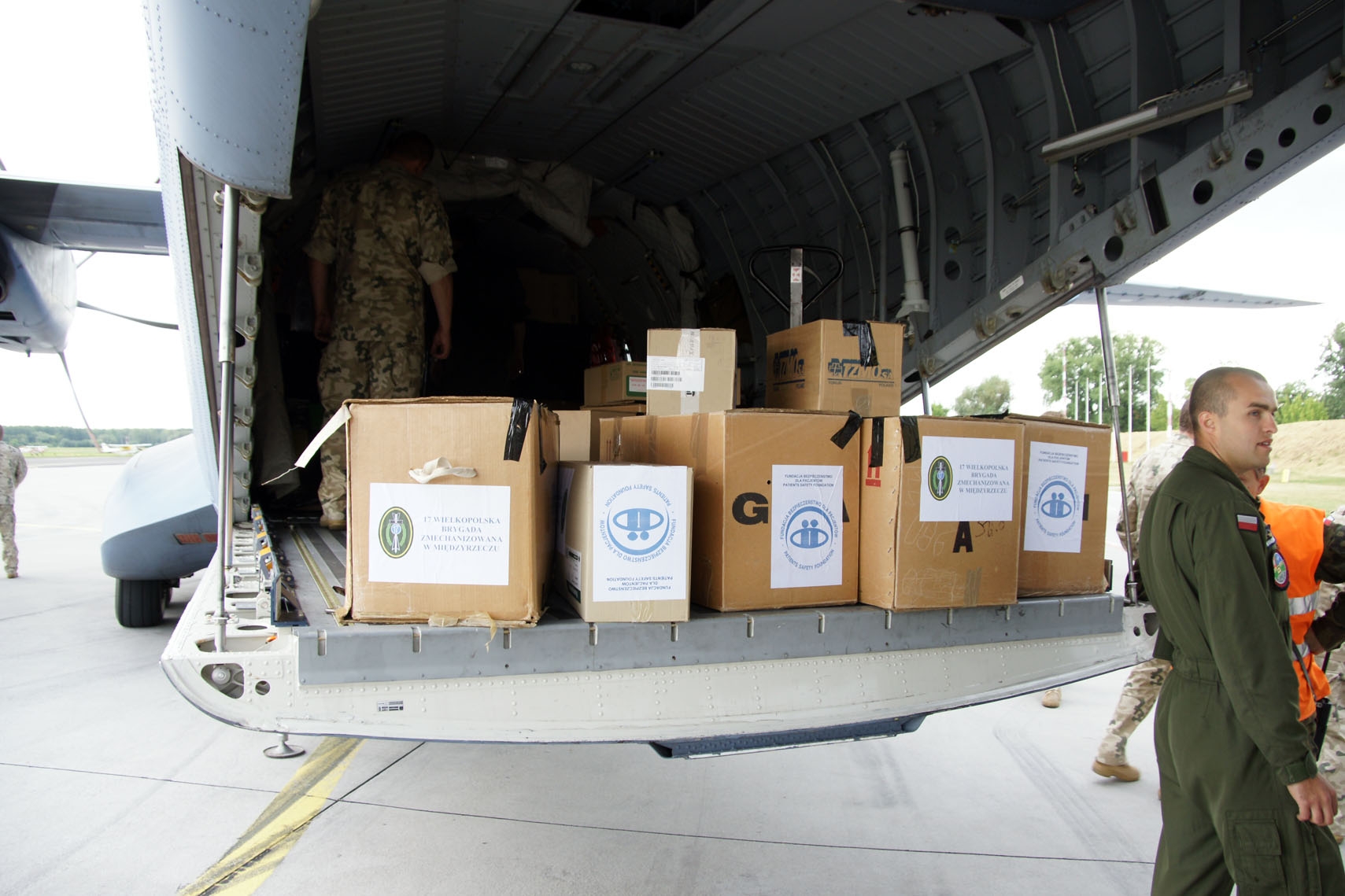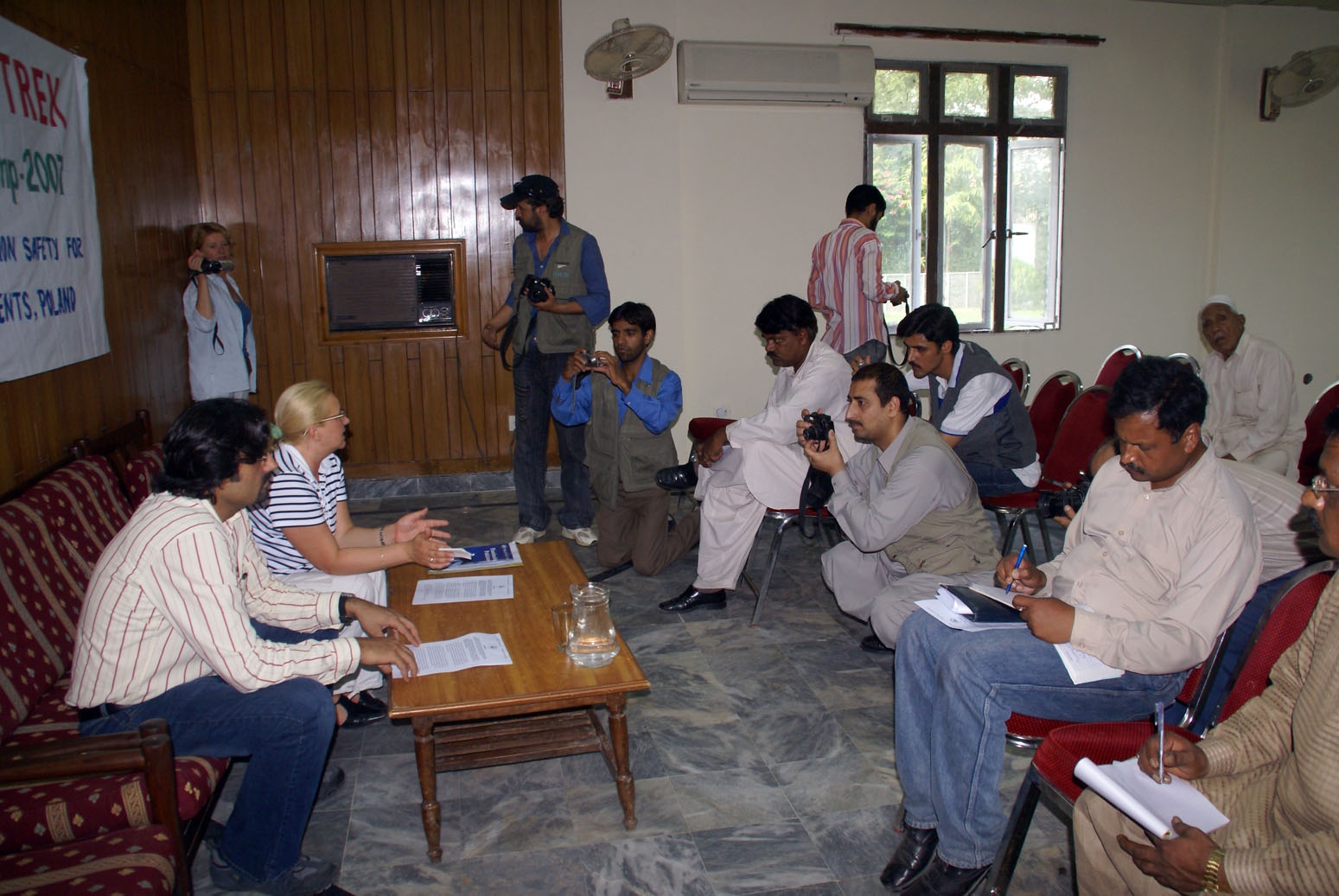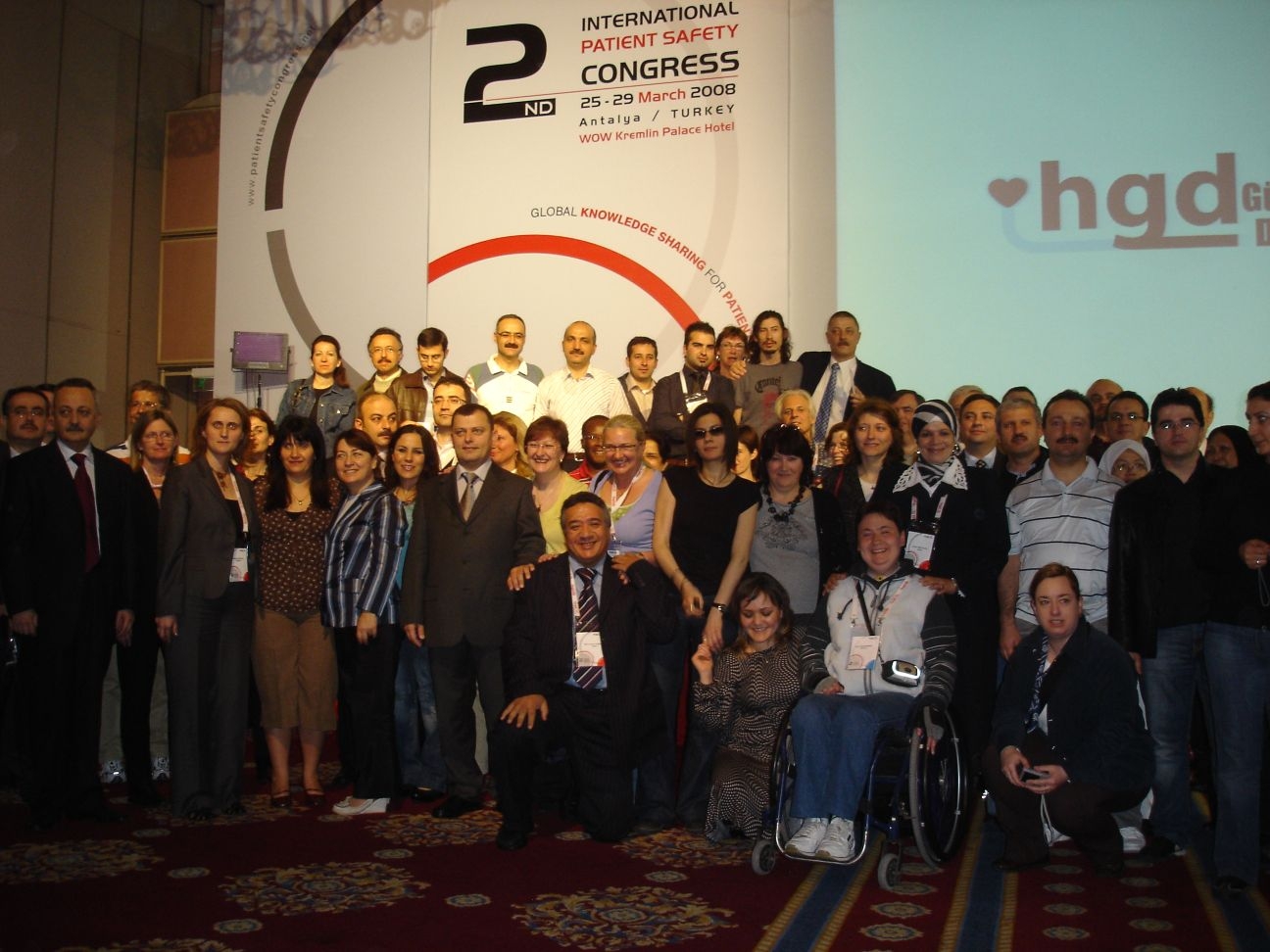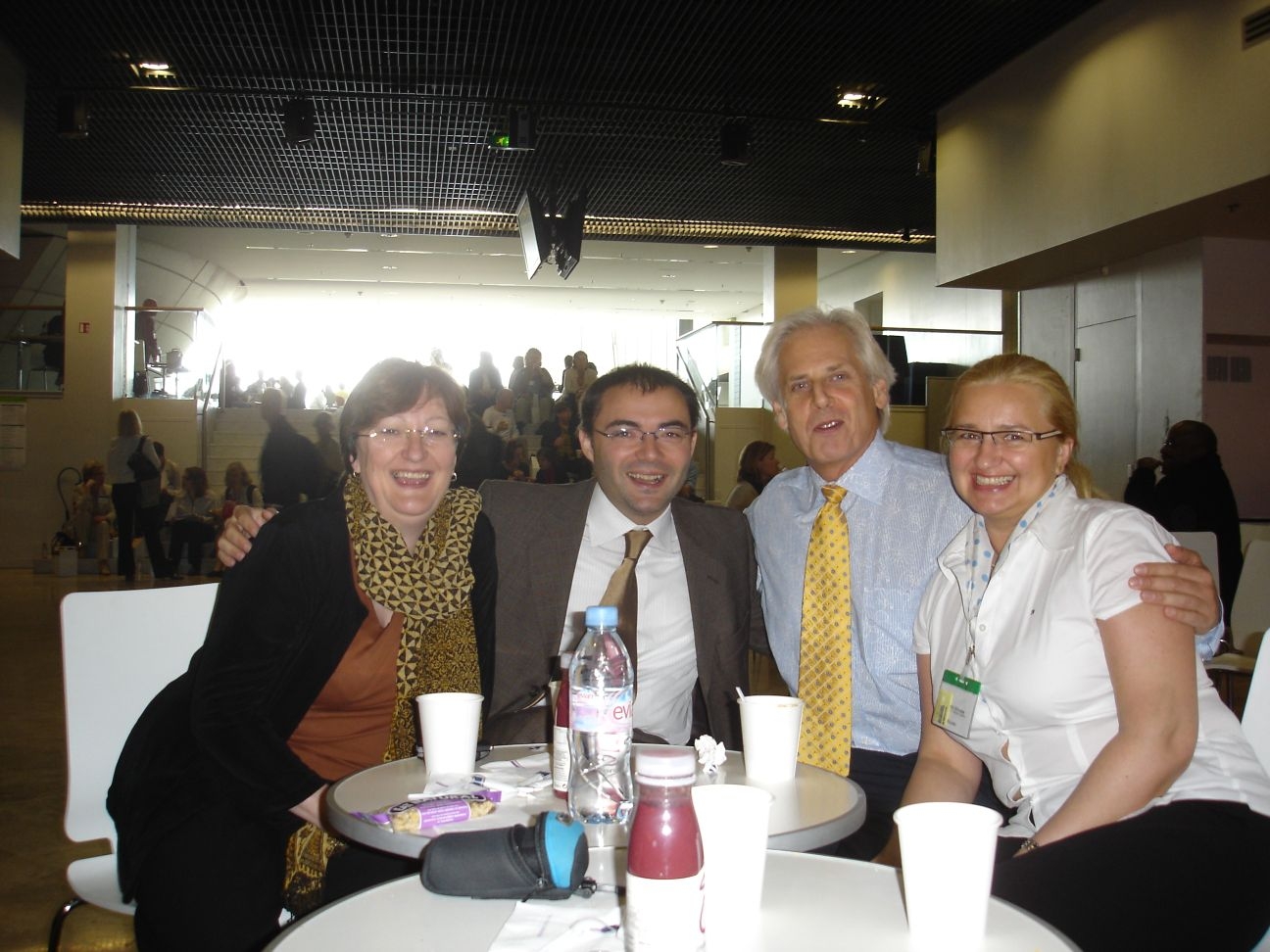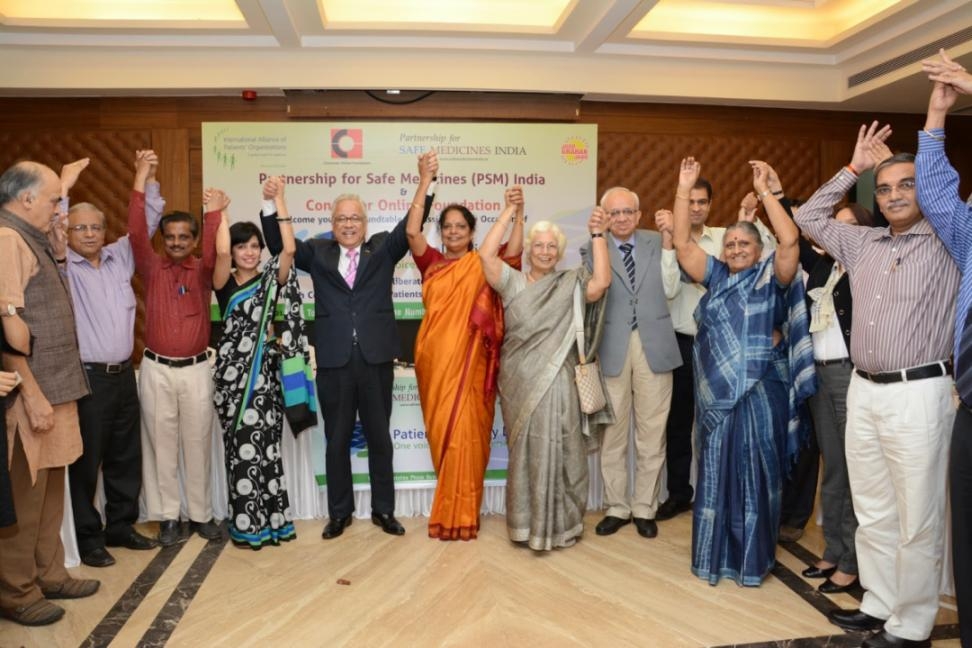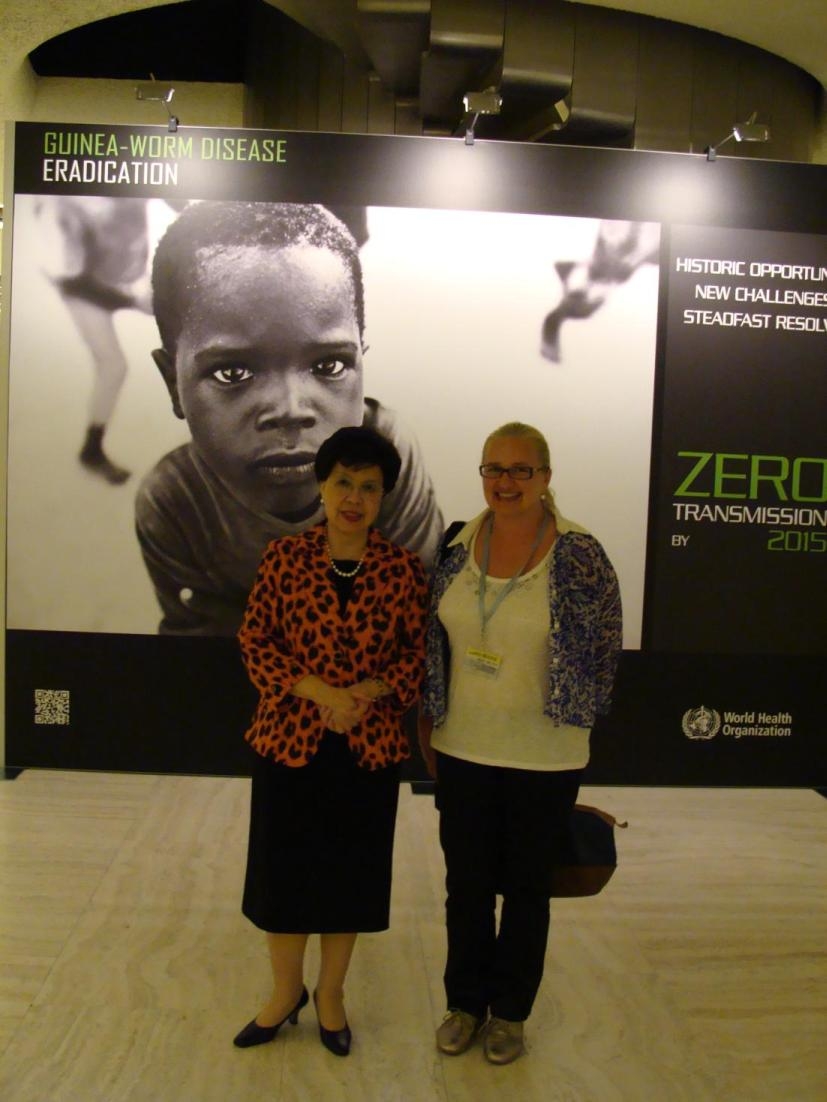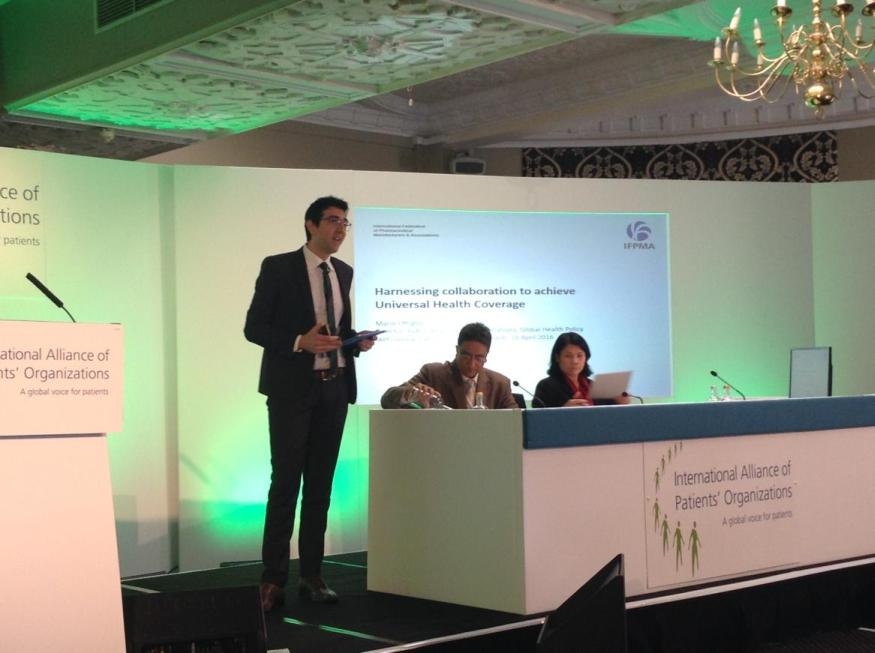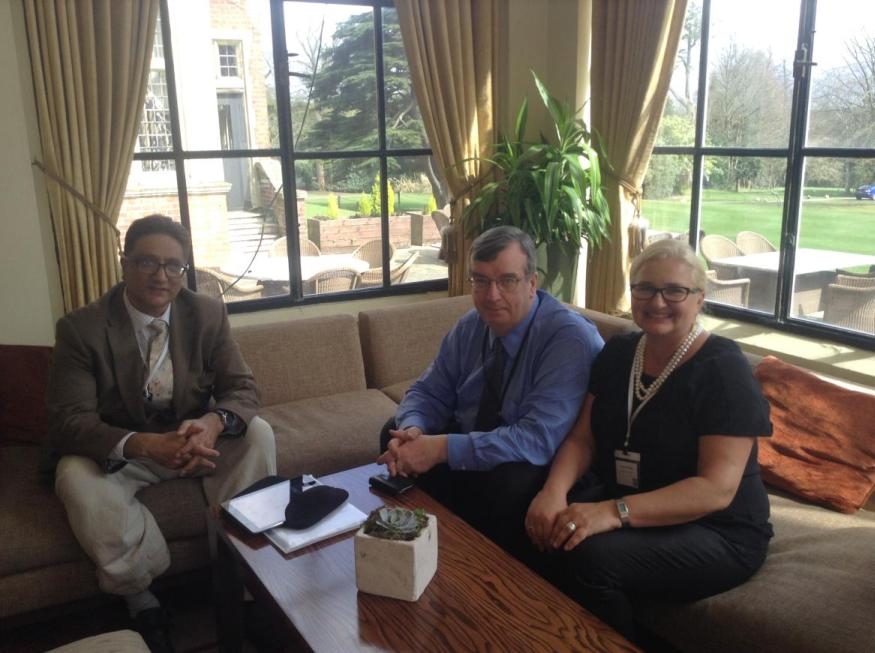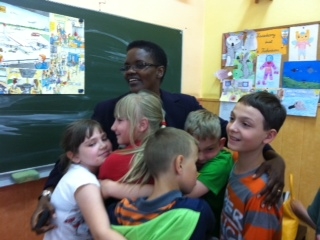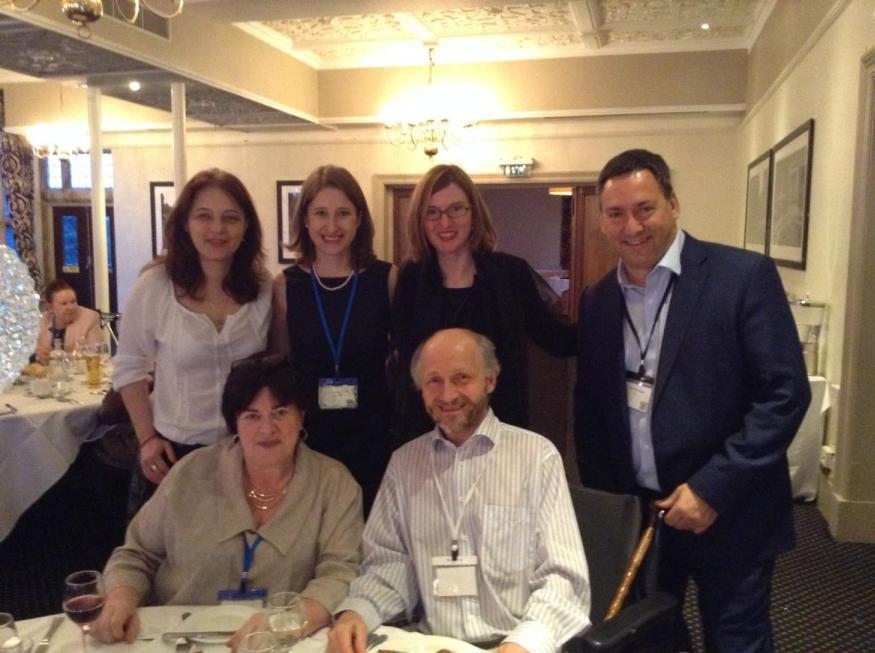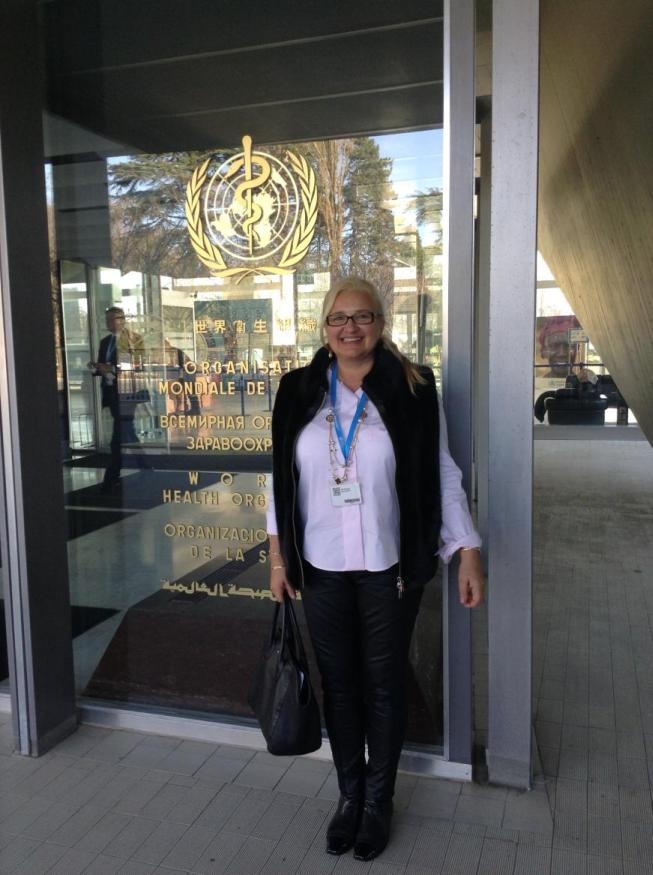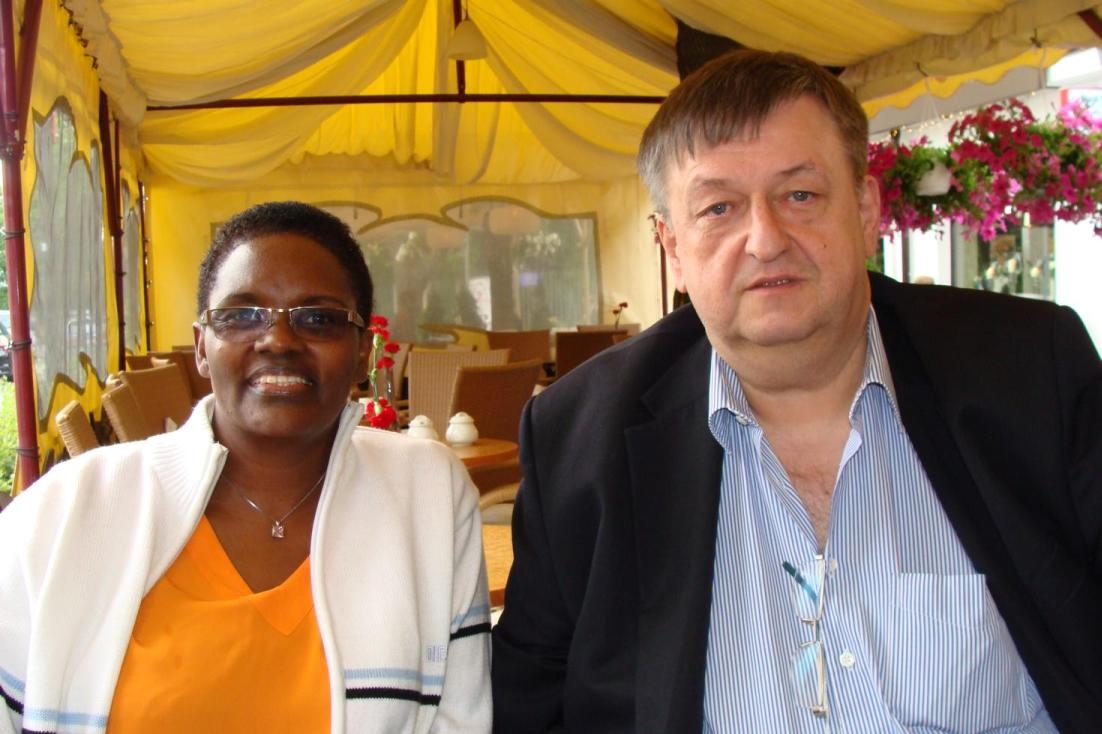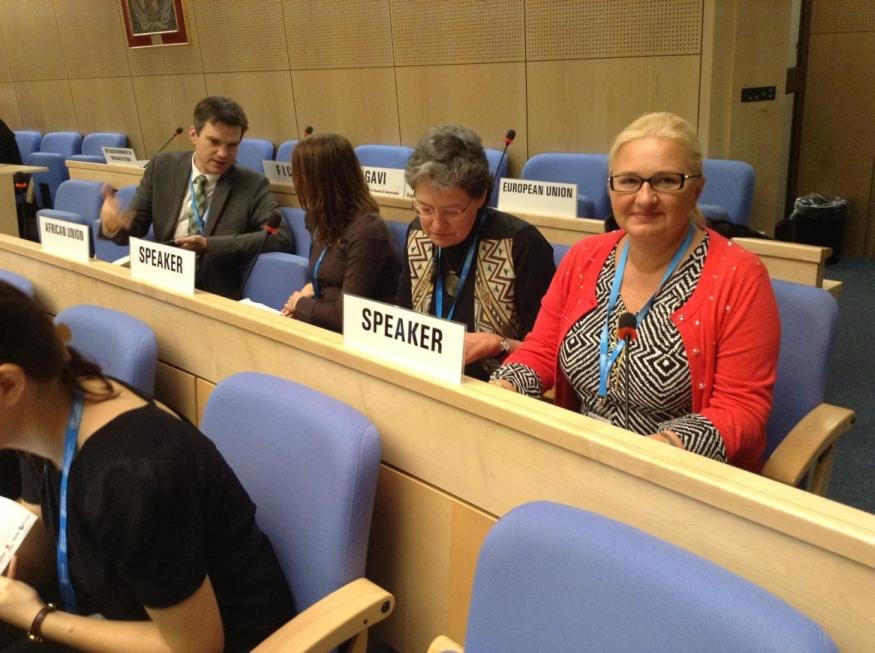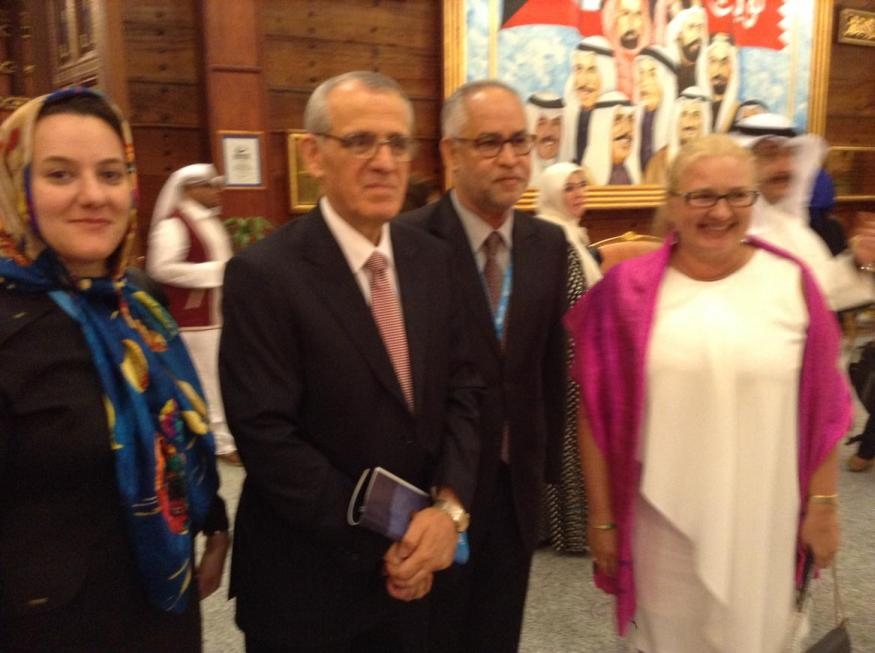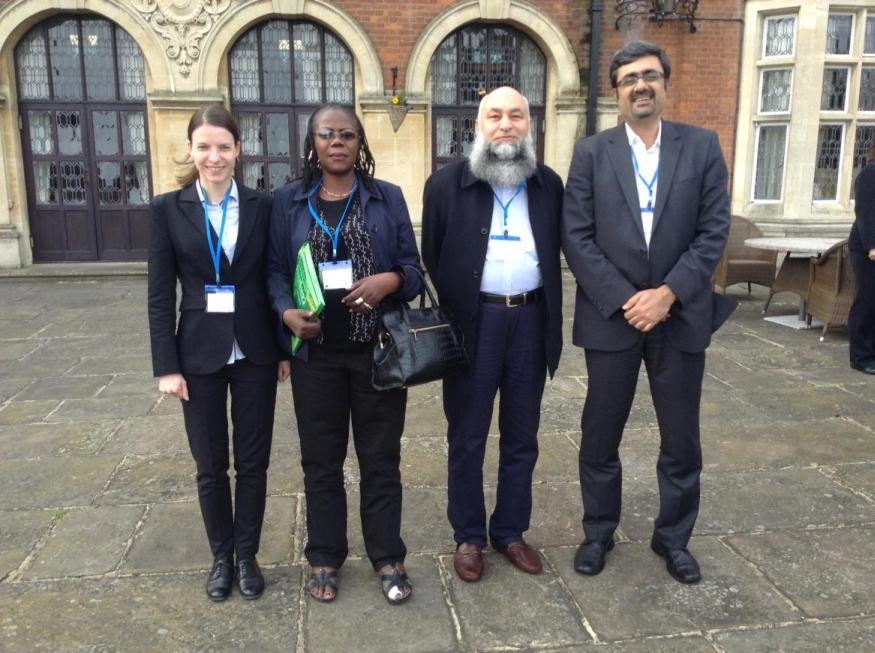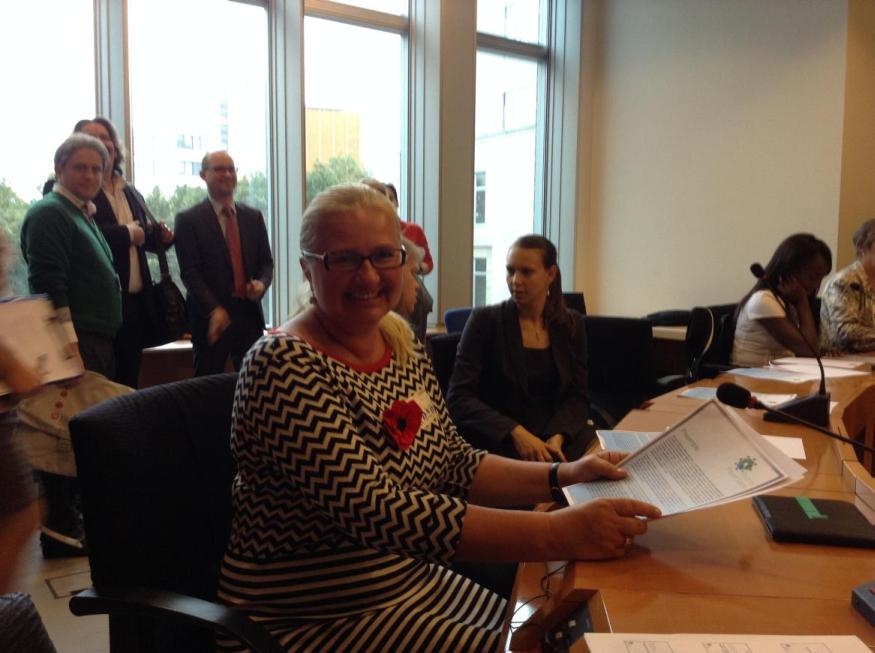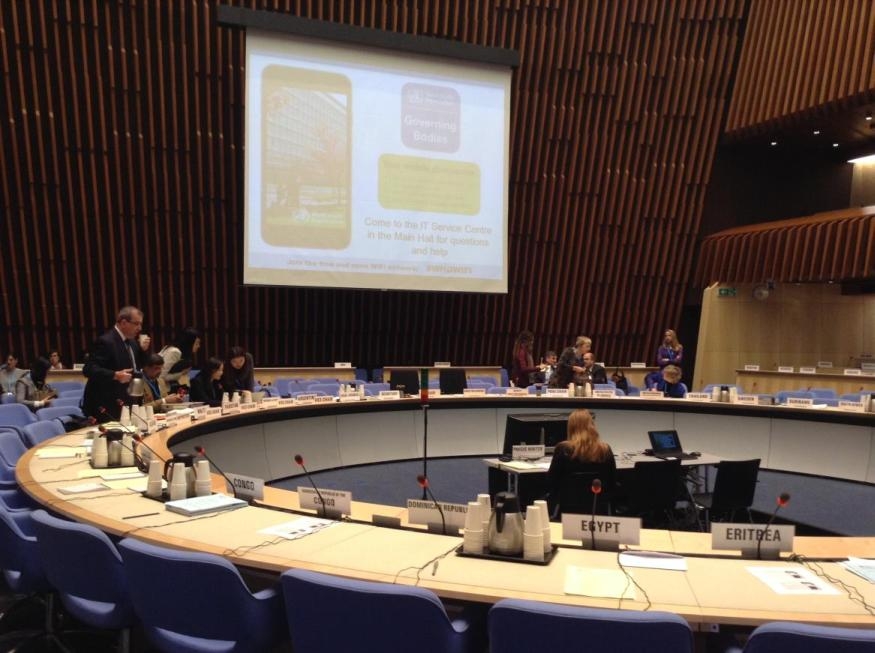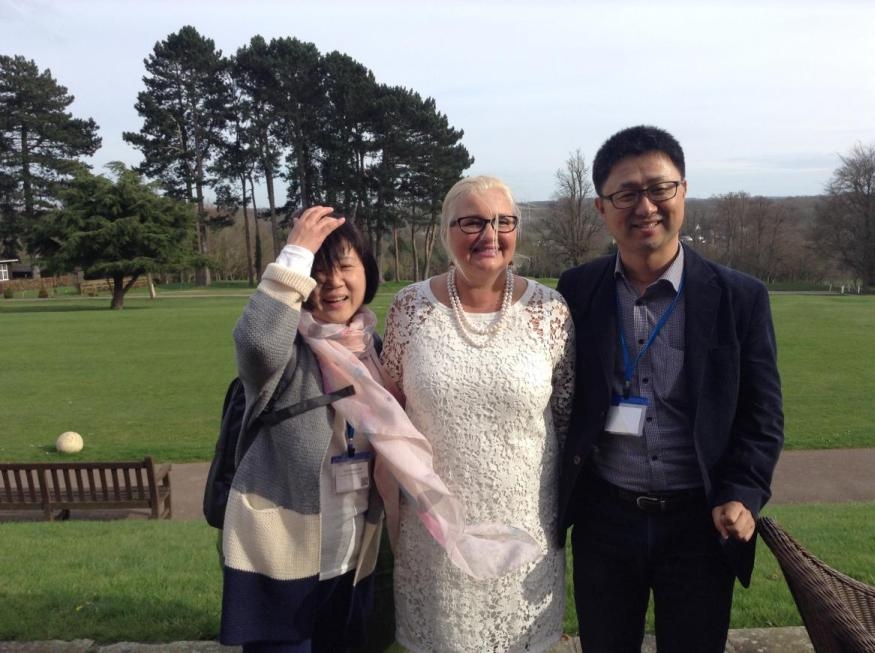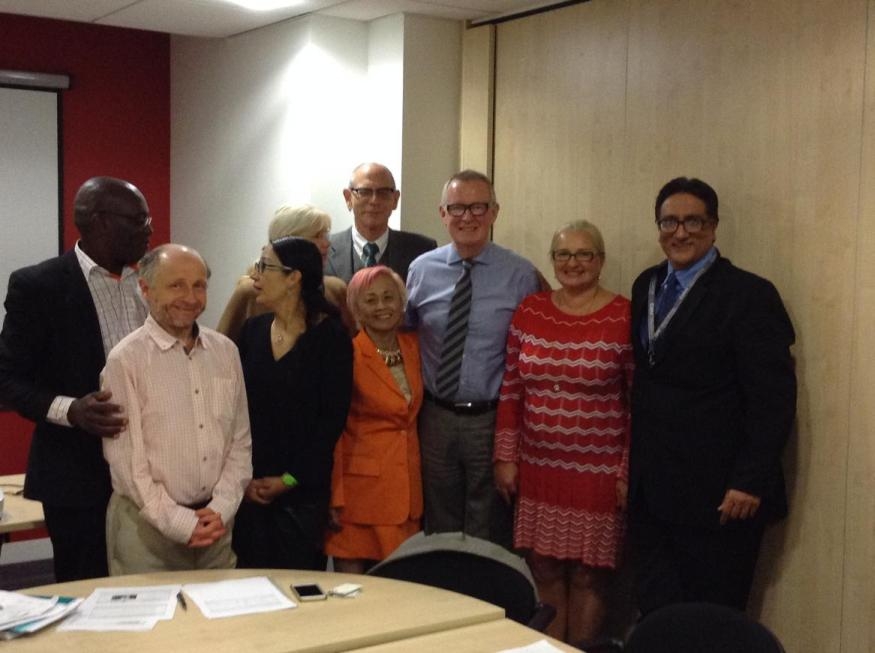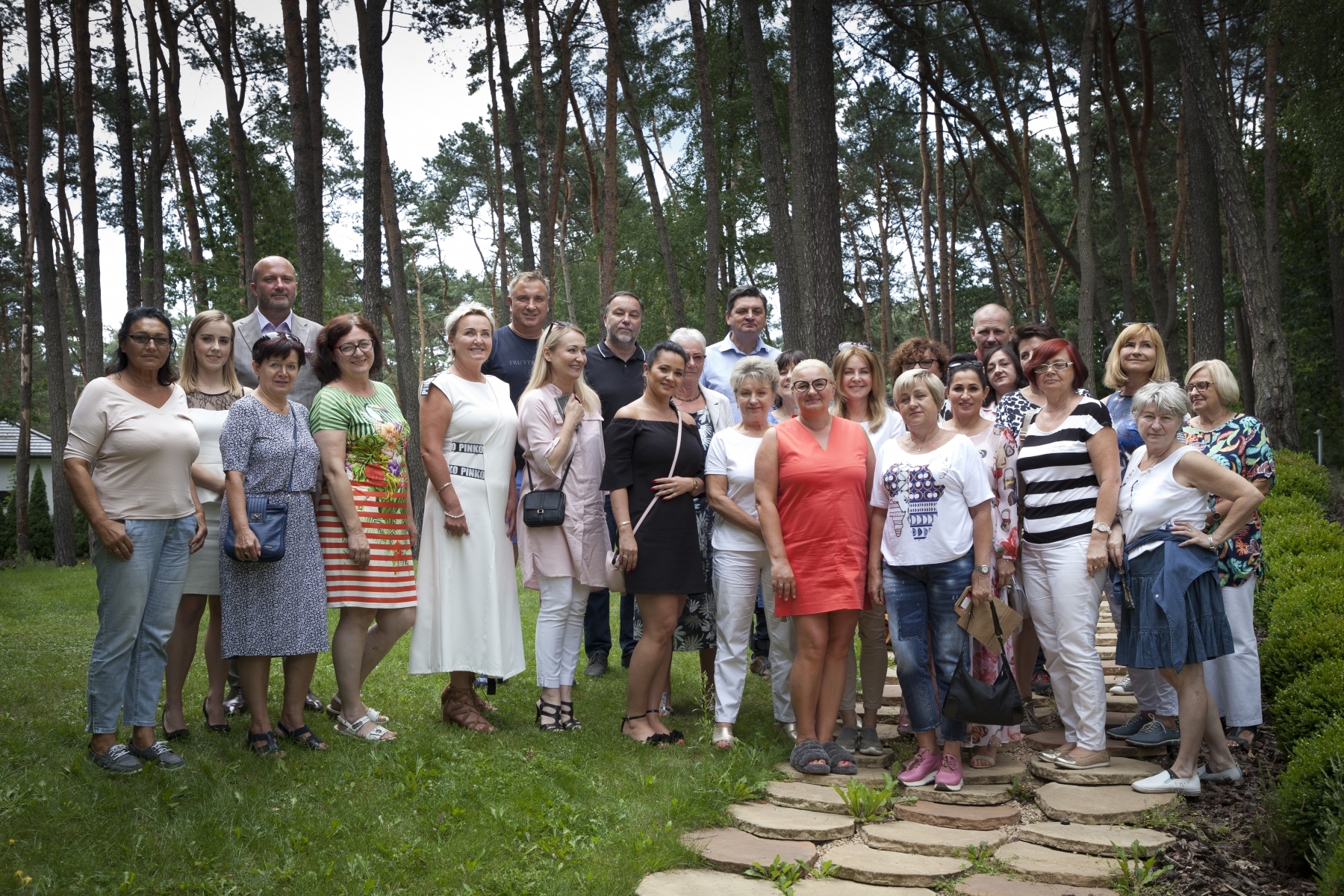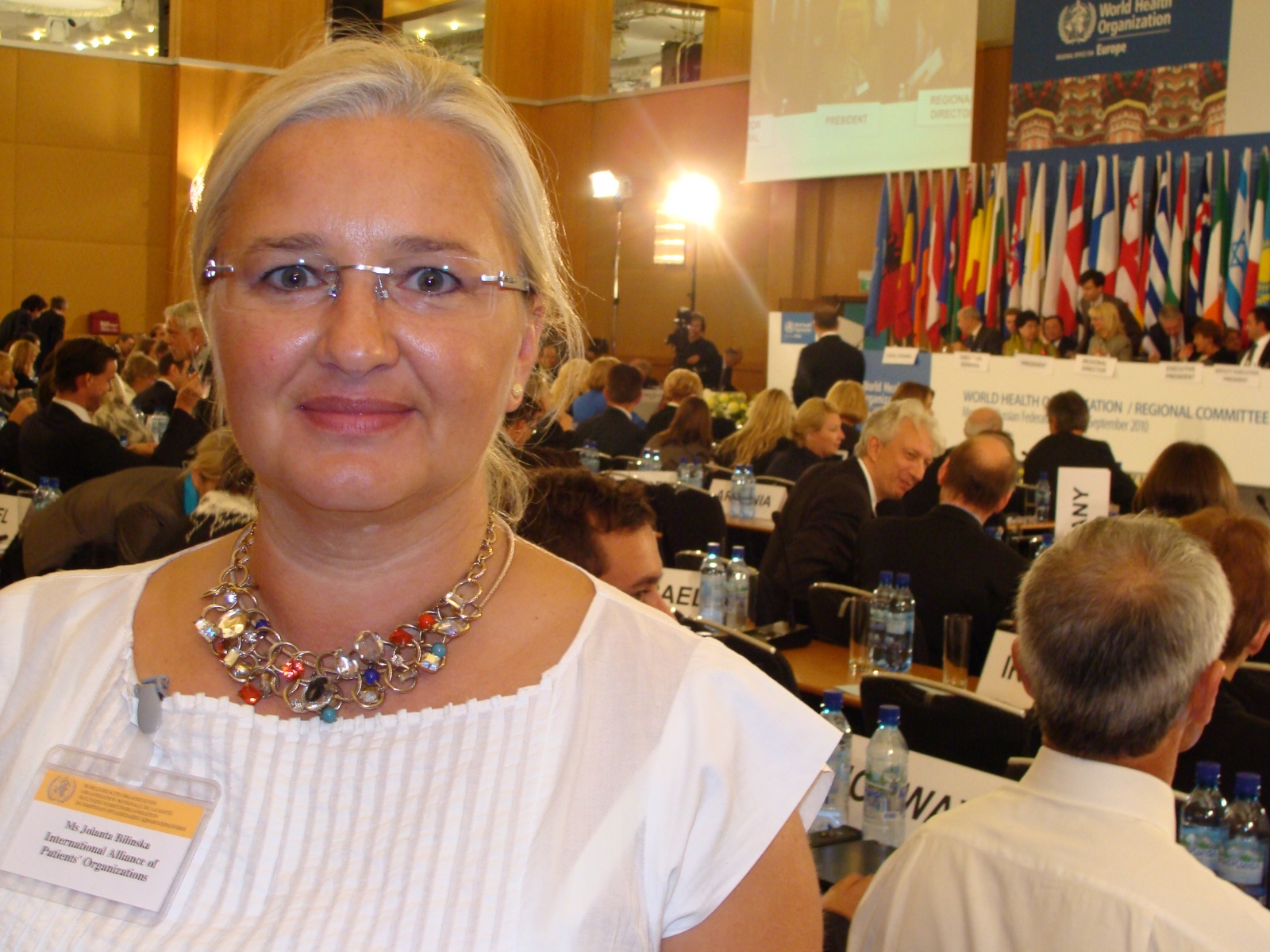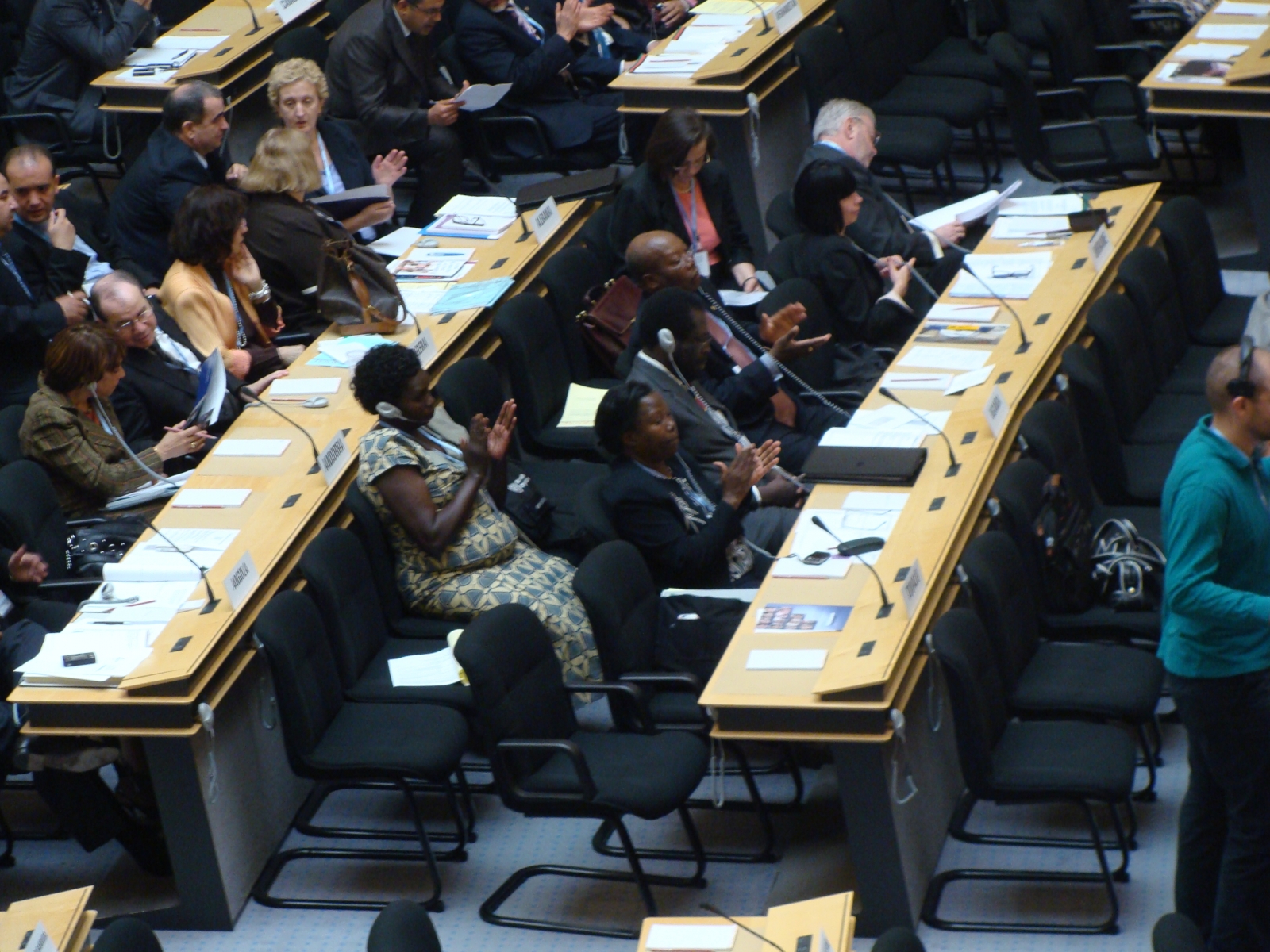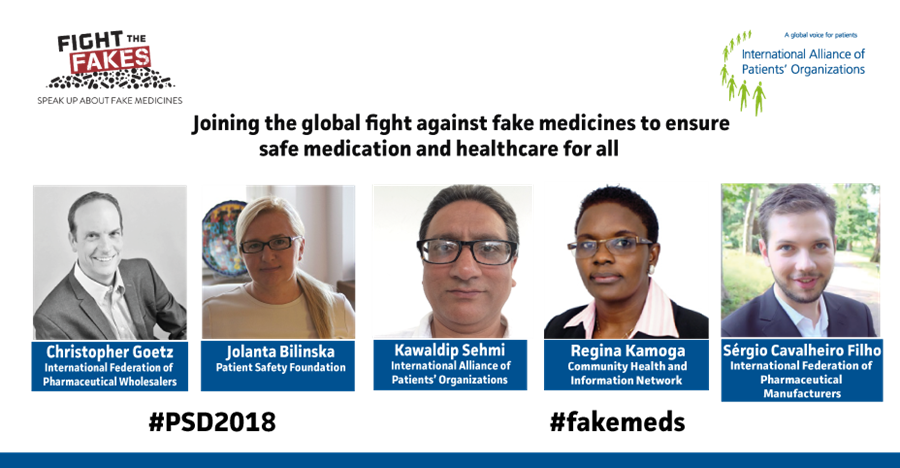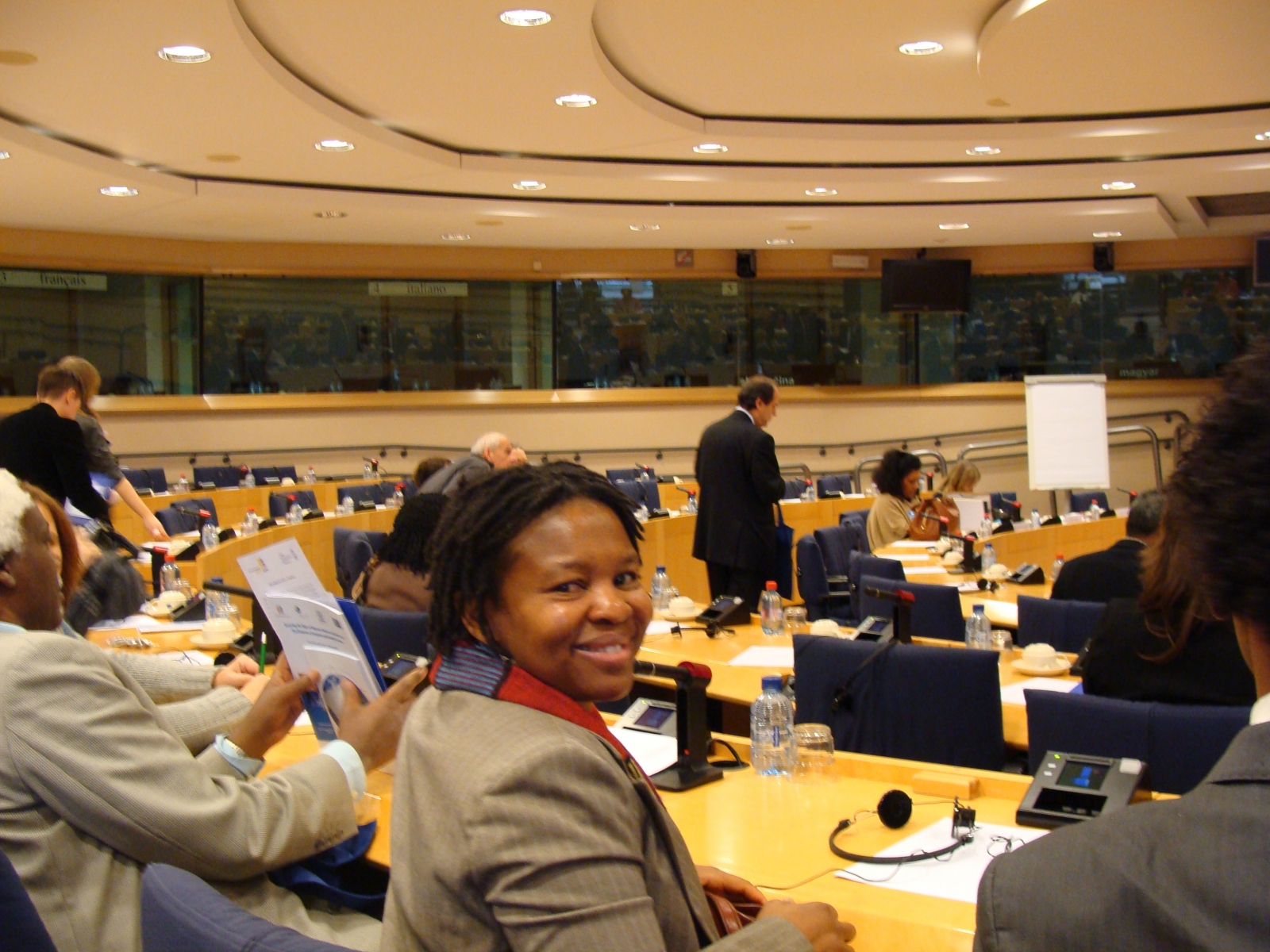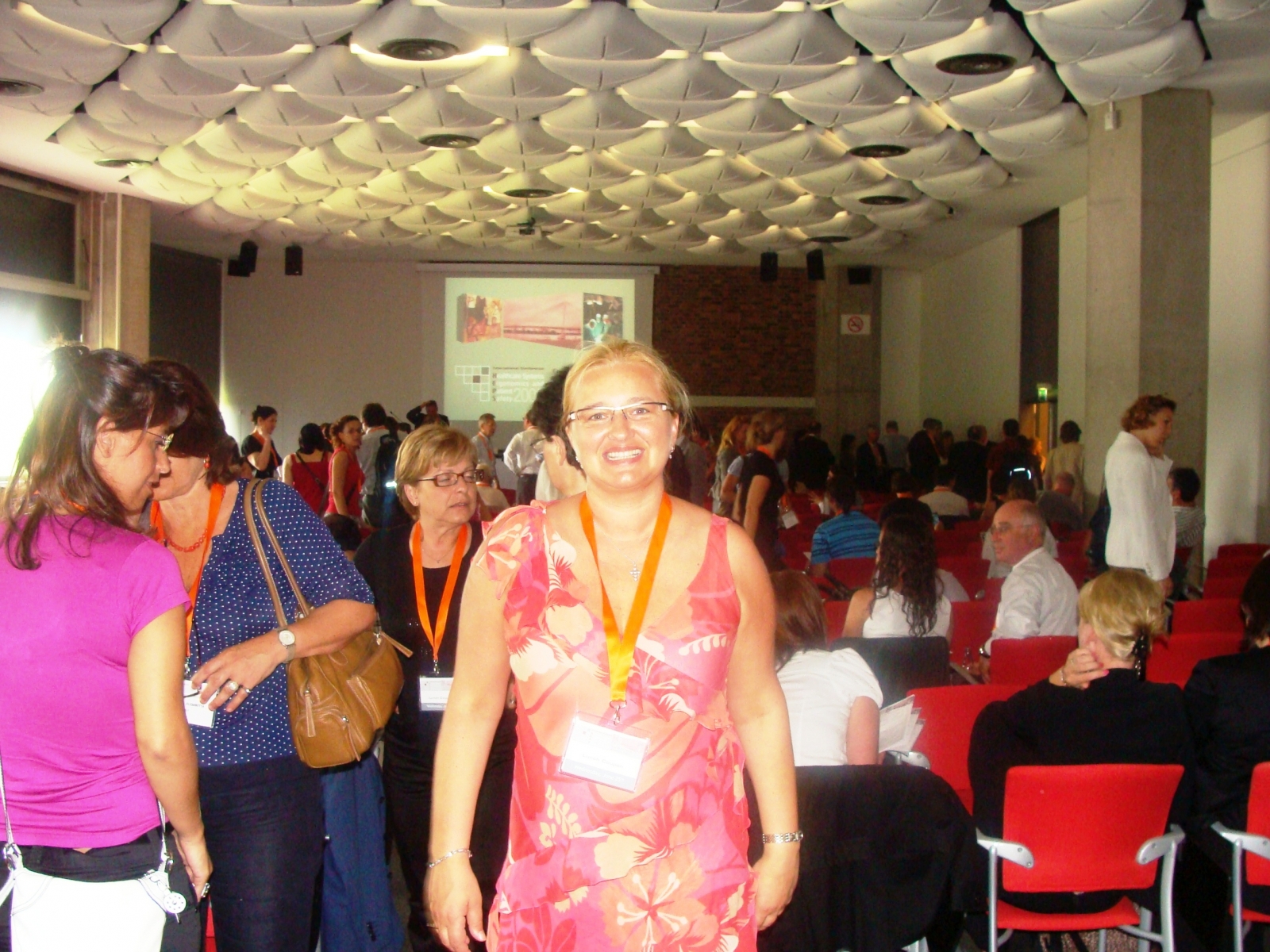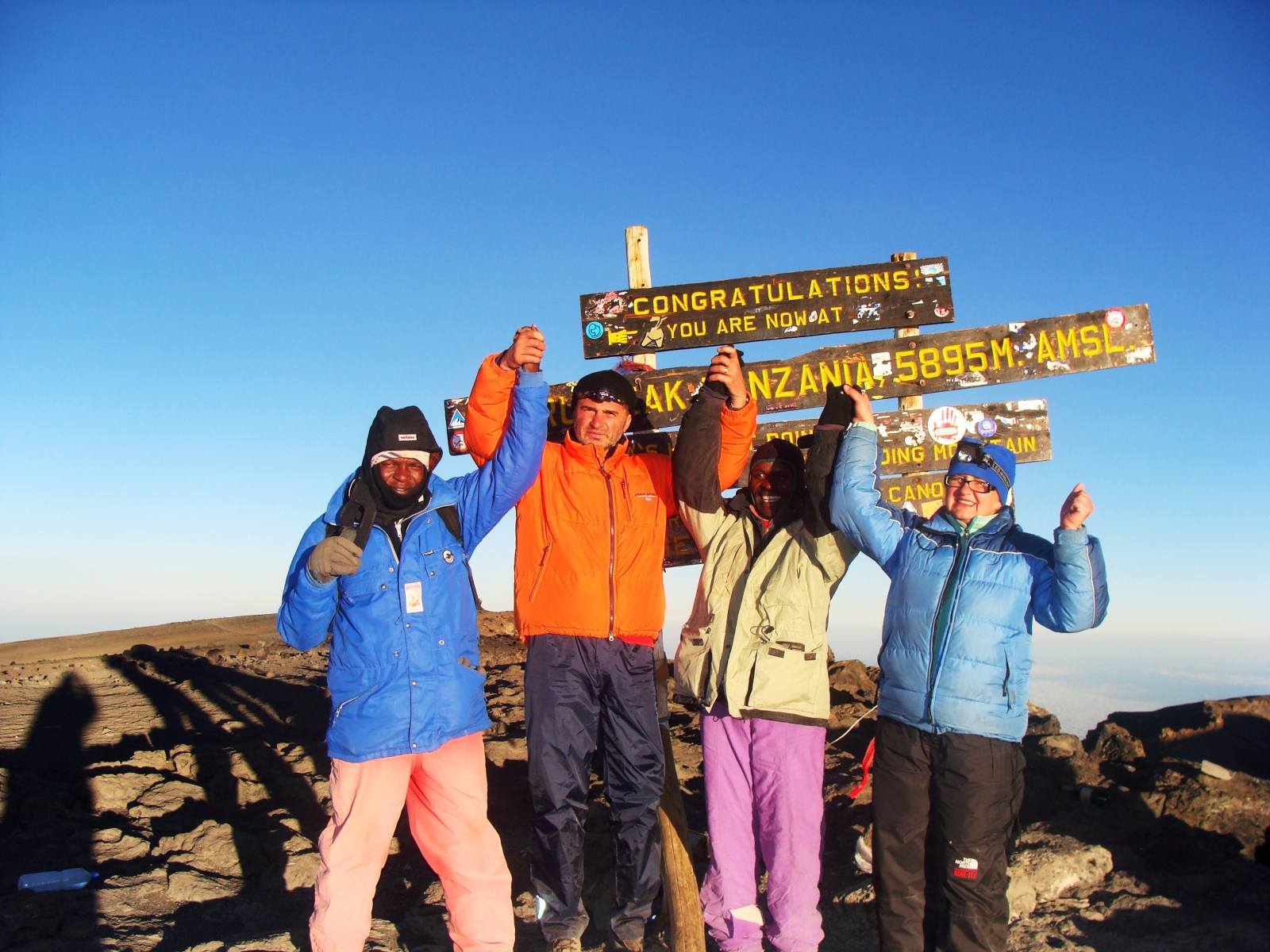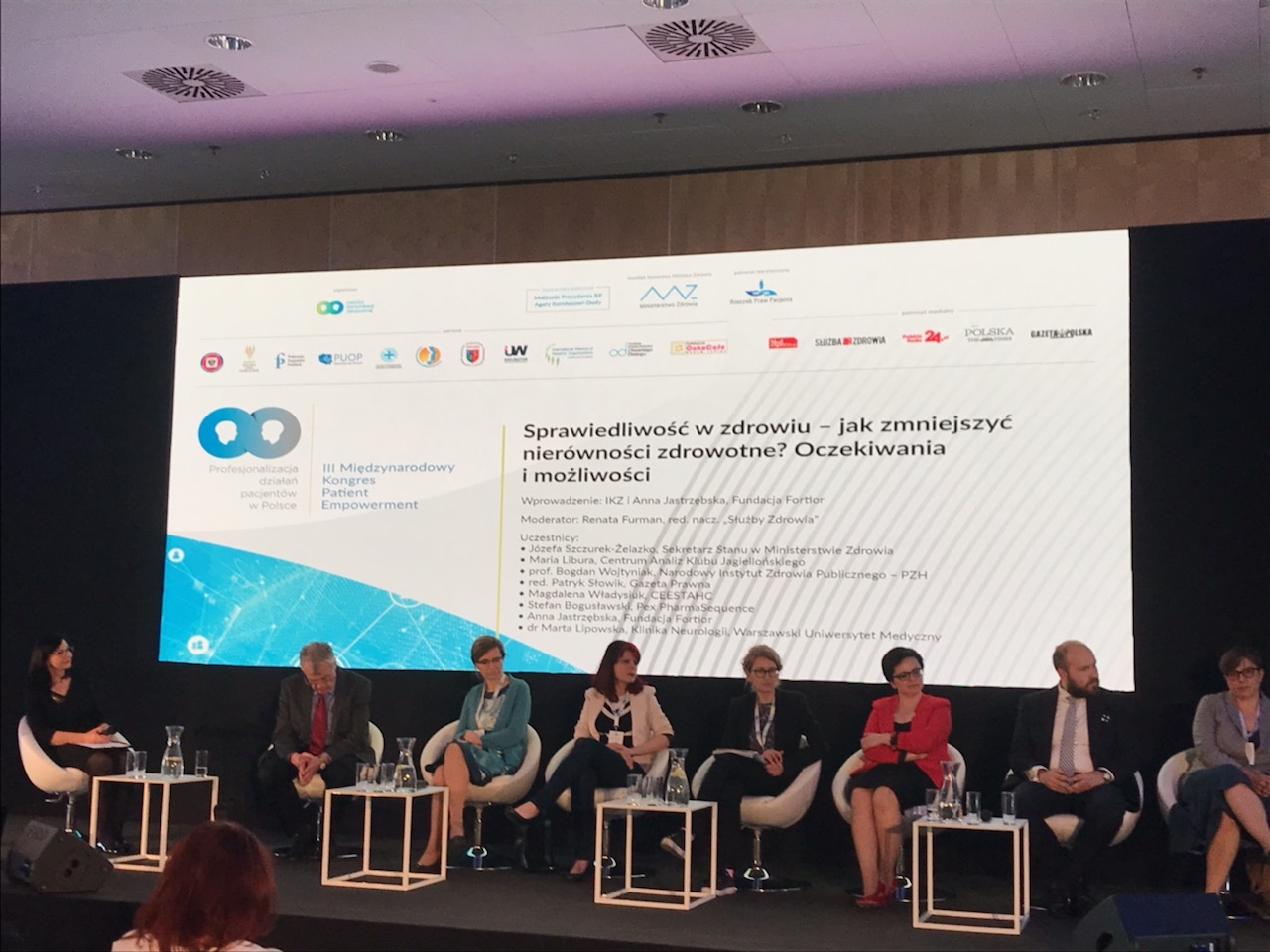OUR ENCOUNTER with Afghanistan started on a fine winter morning of Feb 1st when, still half-dozing, we crammed ourselves into the car and headed over 200 km south-west to reach Wroclaw Military Airport before midday. We were directed to one of the hangars at the very end of road, where all our medical equipment for the hospital in Ghazni waited already on the pallets. Shortly afterwards we met soldiers and civilians awaiting the flight. Some of them were sleeping on the couches or squatting against the wall, the rest conversed vigorously in the middle of the room. The excitement was in the air.
Everything was new. The uniforms, the aircraft, the seats unlike those of any passenger plane we had ever travelled by, the unbearable, piercing cold that seemed to never end, and the two-colored fancy ear plugs. As there were no windows where we were seated, the views could only belong to the sphere of imagination and therefore permeate into our shallow sleep. The machine finally touched the Afghan land after a dozen or so uncomfortable, anxious and impatient hours, delivering us safely to Bagram.
BAGRAM AIR BASE, often referred to as BAF or Bagram Airfield, stretches over the area of a small town, with all its amenities and inconveniences. There are regulars traffic jams on the main road, Disney Drive, named after the first US soldier who lost his life in Afghanistan (later on we learn that Jason A. Disney was a certified welder who died in an industrial accident). There are shops and cafes bearing striking resemblance to those in any Western country; there are gyms and playgrounds, birds and tree-planted alleys; cars and runners. And the ubiquitous dust.
Having had our beverages at the Green Beans Coffee restaurant (the company donates a percentage of their sales to organizations that aid troops, their families and their communities), we left BAF the following morning, on Feb 3rd.
IN LESS THAN an hour, two Chinooks landed on a helipad in FOB Ghazni, our final destination (the abbreviation stands for the Forward Operating Base). One of the first people to approach and welcome us was Warrant Officer Joanna Nowakowska who, to our delight, turned out to be our guide and guardian angel all throughout our stay. Thanks to her we were introduced to the daily life in the base and learned about safety precautions concerning all possible dangers. She also was the one to show us into the dentist’s office, the first aid room and the clinic providing service to Afghani people (unfortunately not operating at the time of our stay).
With WO Nowakowska’s help we gradually became familiar with medical personnel working in the FOB and started attending early morning briefings in the outpatients’ clinic. Luckily for everyone, there wasn’t much to do apart from vaccinations and simple treatment of common colds. The Talibans seemed to have fallen in their winter sleep, hiding high up in the mountains overlooking the base. ‘The period between December and March is relatively tranquil’, Colonel Lidia Nachajska, in charge of the clinic, sighed with relief. ‘On contrary to all other times when the firing becomes as exasperating as the heat from the sun above…’
TO OUR SURPRISE temperatures rarely dropped below zero, at least during the day. Before our arrival in the country we had a totally mistaken notion of the Afghan winter, with lots of snow, extreme cold and penetrating, merciless wind. We experienced none of the above. Instead, we witnessed flood.
WO Jacek Kozicki’s office, the home to the Hamdart Radio, seemed like an island on the sea of mud and thawing snow. In front of the gate there was a lake of a considerable size, behind it – a line of makeshift bridges enabling visitors to enter with relatively dry feet. The hut in the corner of the yard was cosy and warm, filled with Afghan music and the smell of freshly brewed coffee. We were greeted with a huge smile and immediately told to help ourselves to chocolates and sweets pouring out from an ornamented box; a perfect welcome. WO Kozicki gave us a series of lectures on Persian culture and language, introduced us into the intricacy and the burning issues of the Afghan multiethnic community. We were taken away by his stories and listened avidly, only occasionally asking questions to which our interlocutor would always know the answer.
FINALLY THE TIME has come to deliver the medical equipment we had brought to its recipient, the provincial hospital in Ghazni. On Feb 6th, dressed in bulletproof jackets and Kevlar helmets, we drove in a convoy to the town lying 2 km north of the base. The hospital stands at the foot of the Old Town whose earthen buildings can be seen from the yard, teeming with people on our arrival. Before visiting the wards we were led into Dr. Ismail’s (the hospital director) office where the actual act of donation took place. For a while we felt intimidated by the cameras and video recorders as the event was widely publicized in the local media and a bunch of reporters came to take photographs and make interviews.
When the official part was over we followed Dr. Ismail and his wife (and the provincial health director at the same time), Dr. Zia Gul, into the hospital building. Seeing the ward was a powerful experience as we were confronted with striking poverty and the lack of basic facilities, such as heaters or running water in the room. In the middle of it stood a stove, slightly burnt on one side and looking old – as everything else around. The damp-patched walls looked like they hadn’t been refreshed for years; the paint was peeling off the bed frames and metal stands. Women in the room veiled their faces as the soldiers walked in. We proceeded to the operating theatre…
THE WEEK FOLLOWING our visit in the hospital was rather uneventful. We watched spring slowly unfold before our eyes, secretly slipping into the military base as if there was no war around. Life always finds the way, it seems.
On Friday afternoon we all attended a briefing concerning an action planned for the following day. We were given printouts with an accurate schedule, hour by our, of the Saturday MEDCAP (Medical Civic Action Programme as we found out later). It involved getting up in the middle of the night (well, that was 04.00) and rushing out into the cold, but it all only added to the spirit. By 08.00 we were in the village of Janda, Gelan district, standing right in front of what pretended to be a local health centre.
The cars immediately attracted attention of a bunch of kids that literally popped out of nowhere asking for sweets. Helped by the soldiers, we carried several metal cases into two rooms, separate for female and male patients and parted by a muddy yard. The people already started queuing in front of the gate and before 09.00 admissions started. For the next four hours we were busy treating runny noses, coughs, swollen joints, fevers, abdominal pains and all other conditions one can imagine. There was an Afghan doctor and a midwife with us who helped keenly with both medical and linguistic issues – of course without their assistance we wouldn’t be able to understand a word of our patients’ complaints.
Some women came in with their infants, weeping and feverish, muffled in rugs and shawls, some of them later diagnosed with pneumonia. A lot of people suffered from joints pain, many had gastric problems. We mostly administered antibiotics, anti-inflammatory and deworming drugs, as well as vitamins and baby milk. On leaving the yard each person was painted a red mark on their hand so that they wouldn’t come back for more medication. As there were fewer women than men coming, we were done by 12.00 and had an hour to play with the kids and give out some toys. At 13.00 there was still a number of Afghan men waiting to be seen by our doctors but we had to go. Four hours was said to be the maximum time spent in one place without the risk (or with a low risk) of being ambushed. Back in the car we were told by one of the soldiers whose task it was to mark the patients leaving the clinic, that 270 hands had been marked, which was quite an achievement. Extremely happy and fulfilled but at the same time absolutely shattered we slept like children as our vehicles plodded back home.
Kasia Pieruń, Marcin Nowański, Bogumiła Dzikowska
February 2010
Operating theatre in the hospital in Ghazni
The donation
The volunteers in Afganistan
Modern medical equipment is needed in both hospitals and outpatient clinics
Awaiting the doctor
